
Ambon Island is part of the Maluku Islands of Indonesia. The island has an area of 743.37 km2 (287.02 sq mi) and is mountainous, well watered, and fertile. Ambon Island consists of two territories: the city of Ambon to the south and various districts (kecamatan) of the Central Maluku Regency to the north. The main city and seaport is Ambon, which is also the capital of Maluku province, while those districts of Maluku Tengah Regency situated on Ambon Island had a 2020 Census population of 128,069. Ambon has an airport and is home to the Pattimura University and Open University, state universities, and a few private universities, which include Darussalam University and Universitas Kristen Indonesia Maluku (UKIM).
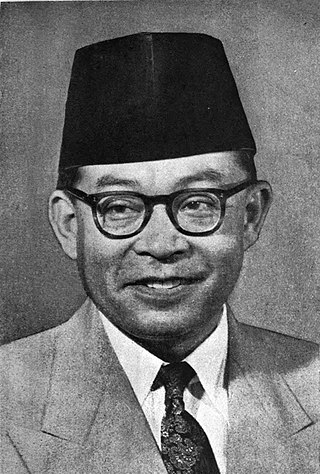
Mohammad Hatta was an Indonesian statesman, nationalist, and independence activist who served as the country's first vice president. Known as "The Proclamator", he and a number of Indonesians, including the first president of Indonesia, Sukarno, fought for the independence of Indonesia from the Netherlands. Hatta was an important figure during the Indonesian national awakening and during the national revolution, as a youth he was politically active both in the Netherlands and the Indies, which led him to be imprisoned in the Boven Digoel concentration camp for his activism, he also played a crucial part in the proclamation of Indonesian independence, being second the person to sign the declaration besides Sukarno, thus naming him as one of the founders of Indonesia.
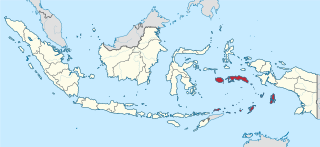
Maluku is a province of Indonesia. It comprises the central and southern regions of the Maluku Islands. The largest city and capital of Maluku province is Ambon on the small Ambon Island. It is directly adjacent to North Maluku, Southwest Papua, and West Papua in the north, Central Sulawesi, and Southeast Sulawesi in the west, Banda Sea, Australia, East Timor and East Nusa Tenggara in the south and Arafura Sea, Central Papua and South Papua in the east. The land area is 46,150.92 km2, and the total population of this province at the 2010 census was 1,533,506 people, rising to 1,848,923 at the 2020 census, the official estimate as at mid 2022 was 1,881,727. Maluku is located in Eastern Indonesia.

South Maluku, also South Moluccas, officially the Republic of South Maluku, is an unrecognised secessionist republic that originally claimed the islands of Ambon, Buru, and Seram, which currently make up the Indonesian province of Maluku.

The State of East Indonesia was a post–World War II state formed in the eastern half of Dutch East Indies. Established in December 1946, it became part of the United States of Indonesia (USI) in 1949 at the end of the Indonesian National Revolution, and was dissolved in 1950 with the end of the USI. It comprised all the islands to the east of Borneo and of Java.
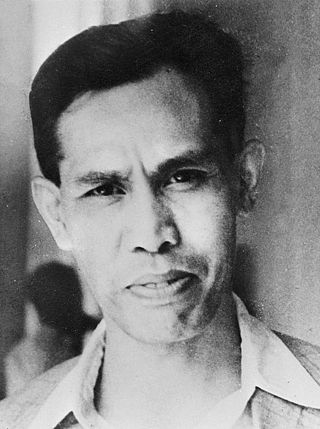
{{Leimena,is his Moluccan patronymic surname}}
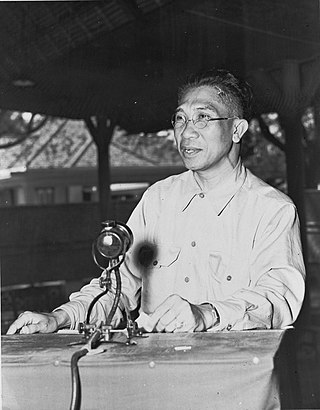
Tjokorda Gde Raka Soekawati, was the only President of the State of East Indonesia from 1946 to its disestablishment in 1950. He served from 1946 until the dissolution of the East Indonesian State in 1950. His title, Tjokorda Gde, signaled that Soekawati belonged to the highest ksatria. He had two wives, the first a Balinese, Gusti Agung Niang Putu, who gave him a son named Tjokorda Ngurah Wim Sukawati. In 1933, he married a French woman named Gilbert Vincent, who gave him two children.

Brigadier General Ignatius Slamet Rijadi was an Indonesian soldier.
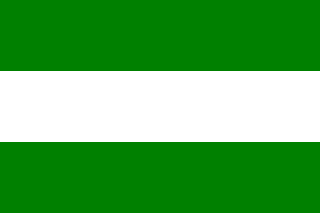
The State of Pasundan was a federal state (negara bagian) formed in the western part of the Indonesian island of Java by the Netherlands in 1948 following the Linggadjati Agreement. It was similar to the geographical area now encompassed by the current provinces of West Java, Banten and Jakarta.
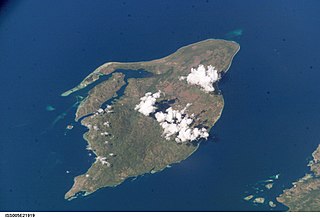
Boano Island is an island in West Seram Regency, Maluku Province, Indonesia. It is located off the northern coast of the Hoamoal Peninsula at the western end of Seram Island, across the Boano Strait. The inhabitants speak the Boano, Luhu, as well as Indonesian and Ambonese Malay.

The Denpasar Conference was held from 7–24 December 1946 at the Hotel Bali, Denpasar and resulted in the establishment of the State of East Indonesia, part of the United States of Indonesia.
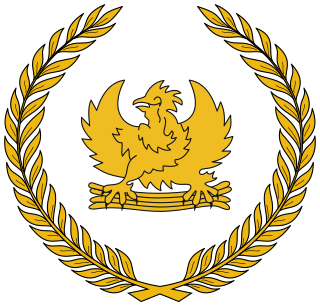
The Cabinet of the State of East Indonesia served as the central government apparatus of the State of East Indonesia, headed by a prime minister who were appointed by the head of state. During the three-year lifetime of the state between 24 December 1946 and 27 December 1949, there were eight cabinets in total, headed by six different prime ministers.

Johannes Latuharhary was an Indonesian politician and nationalist of Moluccan descent, who served as the first Indonesian governor of Maluku from 1945 until 1955, though he did not assume office in Maluku until 1950. A Protestant Christian, Latuharhary was an early proponent of Moluccan inclusion in the Indonesian state and he was an active participant in the struggle for Indonesia's independence.

Tadjuddin Noor was an Indonesian politician and nationalist. He was a deputy speaker of the Provisional People's Representative Council between 1950 and 1956, and chaired the legislature of the State of East Indonesia (NIT).

The Provisional Senate of East Indonesia was the upper house of the parliament of State of East Indonesia, a component of the United States of Indonesia. The Senate existed from May 1949 to August 1950, when the State of East Indonesia was dissolved into the unitary Republic of Indonesia.

Johanis Hermanus Manuhutu was a South Moluccan civil servant in the Dutch East Indies and the first president of the Republic of South Maluku in 1950.

Sultan Muhammad Jabir Syah, also spelt Mohammad Djabir Sjah, was the 47th ruler of Ternate from 1929 to 1975. He was the last Ternatan Sultan with executive powers, since the old institutions of the sultanate were replaced with new bureaucratic structures after the winning of Indonesian Independence.

Nadjamuddin Daeng Malewa was an East Indonesian politician and bureaucrat who served as the first prime minister of the State of East Indonesia from January to September 1947. Prior to becoming prime minister, he briefly served as mayor of Makassar from August to September 1945 and was active in the Indonesian nationalist movement.
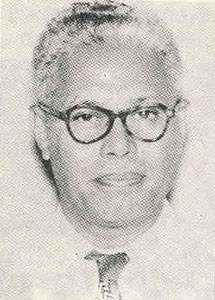
Martinus Putuhena was an Indonesian engineer and politician. He was the Minister of Public Works under Sutan Sjahrir during the Indonesian National Revolution, and briefly served as the Prime Minister for the State of East Indonesia prior to its dissolution.

The Provisional Representative Body of East Indonesia was the lower house of the legislature of the State of East Indonesia, a constituent of the United States of Indonesia. It was formed at the Denpasar Conference in 1946, and dissolved in 1950.


















